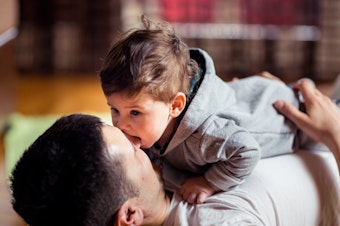Nell Greenfieldboyce
Stories
-

NASA advisers call for a visit to Uranus, plus more science during moon landings
NASA should send probes to the ice giant planet of Uranus and to a moon of Saturn where conditions could be right for life. Those are some of the recommendations in a new report to the space agency.
-
Fossil footprints mistakenly attributed to bears were made by early humans
A new look at some fossilized footprints shows that more than one species of human was walking upright around 3.6 million years ago. (This story originally aired on ATC on Dec. 2, 2021.)
-

The light from this star that astronomers just spotted is 12.9 billion years old
Scientists using the Hubble Space Telescope have spotted light from what appears to be the most distant star ever seen. It offers a glimpse into an early moment in the history of the universe.
-

This trick keeps snakes from suffocating as they squeeze and swallow their prey
How do boa constrictors breathe while constricting their victims? A new study finds that snakes can switch which set of ribs they use to draw in air as they crush their meal before devouring it.
-

Astronomy's contribution to climate change rivals the emissions from some countries
Building and operating telescopes can generate a lot of greenhouse gases. In fact, it's as if each astronomer in the world was driving more than 100,000 miles per year, a new study finds.
-

The James Webb Space Telescope is working as well as astronomers dreamed it would
Picture perfect: Mission managers say the telescope's mirror segments have been aligned and have focused on single stars, a critical milestone, and the telescope is working flawlessly.
-
Encore: Freshly made plutonium from outer space found on ocean floor
Common chemical elements are created in stars like our sun. But heavy elements, like iron, are thought to form in massive stars that explode and spew material — though it might be more complicated.
-

Even babies and toddlers know that swapping saliva is a sure sign of love
For infants, toddlers, and children, one sign of an especially close relationship is if two people do something that involves exchanging saliva, like taking bites from the same piece of food.
-
Encore: Ancient footprints mistakenly attributed to bears were made by early humans
A new look at nearly 3.7 million-year-old fossil footprints uncovered in Tanzania shows that multiple species of early humans lived together at the same time.
-

Scientists think they've found a big, weird moon in a far-off star system
Scientists have found many planets orbiting distant stars, but so far no proof that any have moons. Now, researchers have detected signs of a large exomoon orbiting a Jupiter-like world.